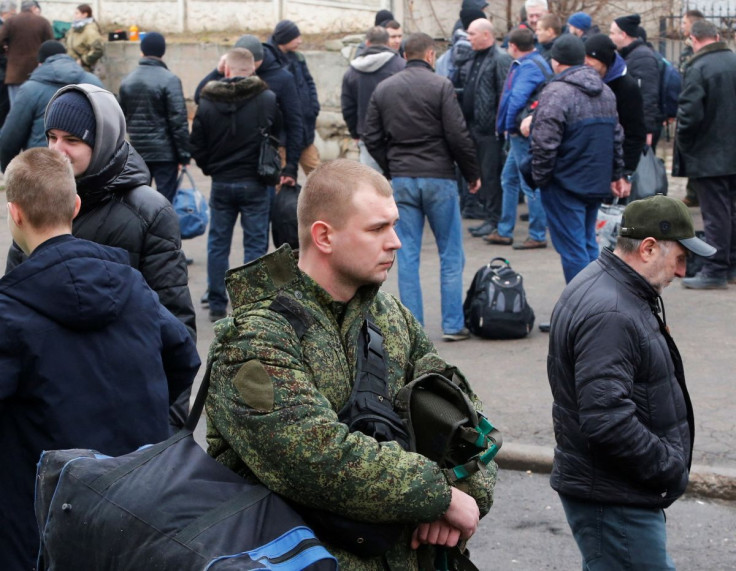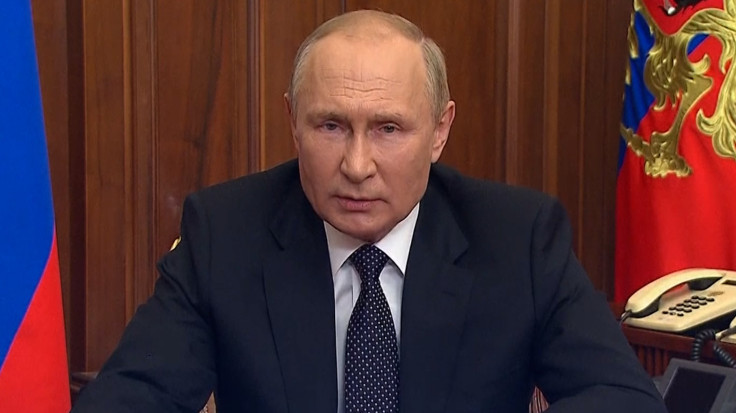Mobilized Men Beat Up Russian Army Soldiers Who Tried To Rob Them Of Their Phones

KEY POINTS
- Newly mobilized men in Moscow beat contract soldiers in their military unit after the latter attempted to extort them
- A brawl between the conscripts and their professional counterparts left 20 of the contract soldiers beaten
- Authorities later arrived, and the military was able to reach an agreement
A brawl between newly mobilized men in Russia and their professional counterparts ensued after the latter tried to extort the fresh recruits, according to reports.
Contract soldiers of a military unit near the village of Alabino in Moscow demanded clothes and mobile phones from their new comrades, independent Russian investigative outlet The Insider reported, citing a statement from the Telegram channel Baza.
The draftees did not tolerate the attitude and responded to the extortion attempt with brute force, resulting in a mass brawl that left 20 "grandfathers," or older soldiers, beaten, according to the outlet.
As the situation went out of control, the beaten soldiers reportedly escaped by locking themselves inside a room and calling the police.
Military police arrived first followed by officers of Russia's Ministry of Internal Affairs, and the military was able to reach an agreement.
None of the contract soldiers ended up writing a police statement after the incident.
Dedovshchina, or the hazing of junior conscripts in Russia's Armed Forces, is still persistent, according to Foreign Policy magazine.
Translated into English as the "reign of grandfathers," dedovshchina can manifest as beatings and extortion up to fatal physical and psychological abuses.
Belgium-based author Dr. Joris Van Bladel noted that Russian soldiers live in a "world of scarcity" and lack "fundamental things [such] as food, beverage and especially money."
This may explain why "dedy," or grandfathers, consistently prey on new recruits' money, food and clothing, according to a Human Rights Watch report.
"You have to know your place until you're fully part of the hierarchy, and then you display the same attitude towards conscripts," said Katarzyna Zysk, a Russia expert at the Norwegian Institute for Defence Studies.
Russia introduced reforms in 2008 that included cutting compulsory service from two years to one and changing the military's management structure and education system, The Moscow Times reported.
These changes did not eliminate dedovshchina, but the number of convictions for abuse of power in the Russian Army halved in the years following the reforms, while convictions for violence decreased fivefold, according to the RBC.
About 1,132 and 372 military personnel were convicted on charges of abuse of power and violence, respectively, in 2018, compared to 2,294 and 2,169 in 2008, data provided by the Russian media group showed.
"The scales of violence based on the informal hierarchy, which was based on period of service, decreased as the term of service was reduced," Arseny Levinson, a lawyer with the Citizen and Army human rights group, was quoted as saying.

© Copyright IBTimes 2024. All rights reserved.




















